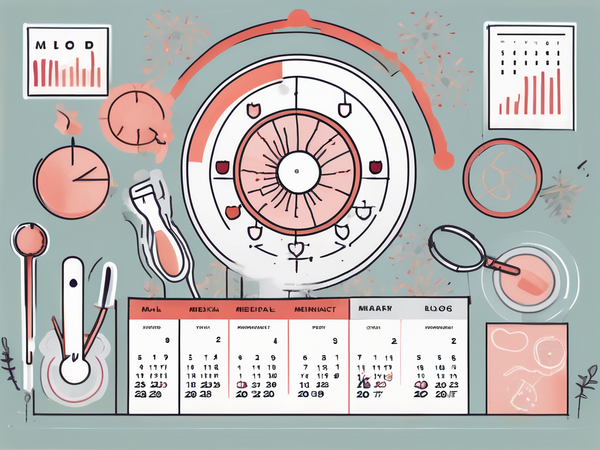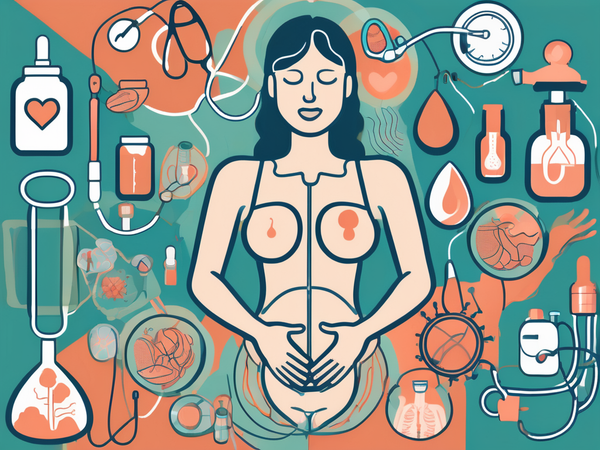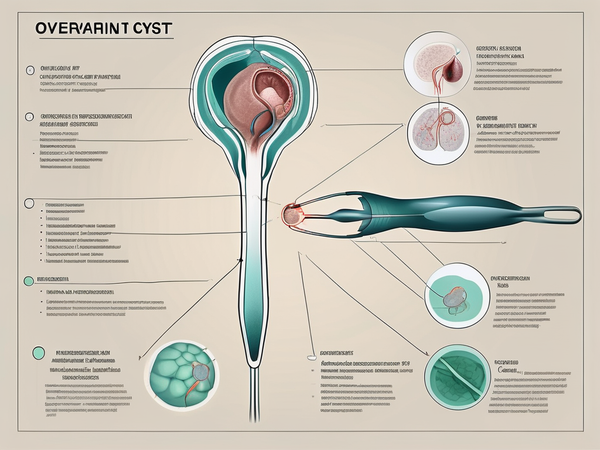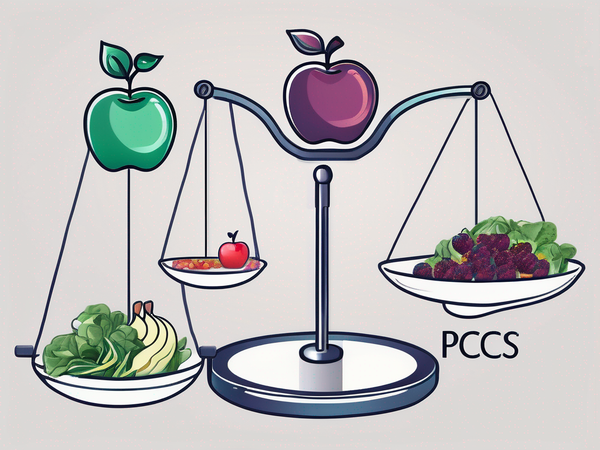It’s 2023, and we’re all in for wholesome approaches to health and well-being that lead women to the path of accomplishment. Women’s health and wellness are critical in today’s world. Every woman is different and has a complex body that keeps changing as she ages. These changes impact her mental, physical, and emotional well-being. Therefore, when a holistic approach is taken into consideration, it addresses all three aspects of a woman’s lifestyle in an integrated way that's sustainable in the long run.
Whether you want to add more self-care into your routine or you want to get in a healthy dose of everyday movement for your body, the road to becoming ‘that girl’ requires a holistic path. Grab a glass of water, put on your favorite yoga pants, and join us as we uncover the secrets of holistic approaches to health and wellness for women.
Holistic Approaches to Mental Wellbeing
Taking a holistic approach to mental health and well-being means taking into consideration the social and emotional factors that accompany your day-to-day stressors. These include your environment, your lifestyle, your social circle, etc. Here are some activities that can boost your mental well-being.
1. Yoga
Mindfulness is the first step towards attaining the calm you want. Yoga is one such combination of mindful physical movement involving breathwork that, when combined correctly, gives you the most positive results. It’s important to set the tone of your environment properly before you begin yoga. The optimum way to begin is by getting a rug or a yoga mat and ensuring the room you’re in is quiet enough for you to begin your mindful breathing. The modern lifestyles that we lead bring along stress, anxiety, and low mood. These effects, in turn, have an adverse impact on our physical health too. Yoga promotes restorative balance in both our psychological and physical states of mind.
2. Meditation
Meditation is closely associated with relaxation for the mind. However, several studies have proven that it is a holistic approach toward a healthy state of being. Apart from relaxing the mind and easing the nervous system from symptoms of stress, anxiety, depression, hypertension, etc., meditation is also effective in helping us sleep better and boosting our cognitive performance.
For example, research found that meditation increases attention span and improves awareness while completing a task. If you find yourself too distracted due to stress or burnout, it can be highly effective to dedicate at least a few minutes to meditation every day. Regular meditation can also help you improve interpersonal interactions and be more positive and self-aware. It’s time to finally play that guided meditation soundtrack for good!
3. Journaling
Journaling has gained a lot of popularity in recent times, thanks to increased awareness about mental health and ways to cope with stress. Remember the days in your childhood when you kept a personal diary and wrote about everything that affected your day, be it a good or bad event? Journaling as an adult is just that. In this hyper-stressful world, journaling can help us gain more control over our thoughts, stressors, and triggers daily. Keeping track of your emotions can help you identify your concerns and work through them, often with external help if needed. It also provides ample opportunity for you to identify an emotional pattern of thoughts and gain more control over your emotional state.
If you’re feeling more stressed or anxious lately, journaling can also help you avoid ruminating over negative thoughts and steer clear of developing an overthinking mindset. If you’re confused about where to start, you can look at some journaling prompts to get started. For example:
i) What are you grateful for today?
ii) What could you have done differently about a negative situation you’ve faced?
iii) What new opportunities are you looking forward to?
Holistic Approaches to Physical Wellbeing
Healthy is something we all aspire to be at every point in our lives. The most common resolution people make when starting a new beginning (read: new year) is to get fit and healthy and lose or gain weight to be their best physical selves. But being healthy requires a holistic approach to give you results that will last throughout your life. It takes into consideration your diet, your activity levels, your stress levels, your lifestyle, your day-to-day stressors, and your sleep. Maintaining a routine is one of the easiest ways to make sure you can sustainably execute all the measurable steps toward improving your physical well-being in the long run. Other than that, to define your pathway to perfect physical health, here are some approaches to take.
1. Pay close attention to your diet
It is so important to scrutinize everything we put into our bodies because the food that we eat has a direct impact on our mental and physical health. Start switching to a balanced and healthier diet. Practice mindful eating, look at your plate when you eat and try to avoid any unnecessary distractions. Keep yourself hydrated. Do not starve yourself, especially at night. To start your healthy diet journey, you can try making minor changes. Instead of completely cutting off sugar, salt, and sweets, you can reduce the amount. For example, switch from 6 cups of coffee or tea a day to 3 cups.
2. Opt for organic supplements
Preparing a balanced diet every day might be an unrealistic goal for many. In that case, you can take supplements to fill the nutritional gaps.
Types of supplements women should have include:
-
Multivitamins
Supplements with multivitamins for women could be a great addition to one’s routine if your diet is unable to fulfill those nutrients for your body. A multivitamin for women supplement is created with the nutrition needs and functions of a woman's body in mind as she ages. A good multivitamin for women can be highly beneficial for providing PMS support, reducing the chances of urinary tract infections, strengthening bones and joints, and improving hemoglobin levels, all while boosting your energy and immunity through the power of its micronutrients.
-
Protein supplements
Another thing that most of our diets lack on a daily basis is protein. It can also be a tad difficult to obtain the benefits of protein from only food if you’re a vegetarian. In such cases, investing in a good vegan protein powder or plant-based protein can prove to be a wise decision. Some vegan protein powders may also contain spirulina, which is a great antioxidant for the body. Talk about wins!
-
Fiber supplements
Apart from protein, getting enough fiber from your food is also necessary. It is a macronutrient that doesn’t get the attention it deserves but plays a significant role in not just our digestion process but also metabolic health, cardiovascular disease, gut mobility, etc. Research has also found a link between low fiber intake and depression, and even the risk for coronary heart disease. And that’s something we’re looking to avoid while taking a wholesome approach, so eat your fibrous foods or opt for a fiber supplement. Look for a fiber supplement that contains the goodness of whole grains, legumes, seeds, and superfoods.
-
Collagen
Another component that’s important to our bodies is collagen. We've all seen or heard of anti-aging skin care products marketed to women over the age of 25. The reason we develop wrinkles and fine lines so visibly as we age can be attributed to dwindling collagen production. Our bodies do produce collagen naturally, but the production levels drop. In fact, in our early twenties, our body loses 1.5% of its natural collagen year after year. Adding a collagen peptide supplement to our daily diet will not just help us replenish the lost collagen in our bodies, but will also ensure our overall well-being. Collagen peptides impart skin radiance and regenerate new cells, giving you a glow from within, reducing fine lines and wrinkles, and helping you get an even complexion.
Pro tip: The best collagen peptides are the ones sourced from deep-sea fish, as they’re highly bioavailable, sustainable, and a clean source of nutrition.
-
Iron Supplement
A lot of women have an iron deficiency, which leads to a lower hemoglobin count. Over time, they develop anemia, fatigue, and a lack of energy. Iron supplements containing folic acid are extremely effective at increasing iron levels while decreasing fatigue.
3. Be actively engaged in a workout
Regular exercise has proven health benefits that are both physical and mental. There is no one-size-fits-all approach when it comes to exercising. You can pick anything that is movement based and makes you feel good after a workout, i.e., releases endorphins. It could be yoga every morning, a pilates session, strength training, walking, cycling, or even cardio movements like running on the treadmill, aerobics, or Zumba. Pick what you like and stick to it for better results.
Exercising regularly is shown to improve cardiovascular health, strengthen bones and muscles, increase flexibility and balance, and make your bones and muscles function and support you better. It also helps reduce the chances or risk of chronic diseases like diabetes, heart disease, osteoporosis, and even some types of cancer. It also improves mood and reduces symptoms of depression and anxiety.
If you exercise regularly with weights or practice strength training or powerlifting exercises, adding a vegan protein powder to your post-workout regime can help you recover faster. If you’re over 30, opting for collagen is also a great way to get the benefits of your workout. Collagen is required not only for the health of your hair and skin but also for the proper functioning of your cartilage and joints. On the other hand, if aerobic exercises or cardio are your things and you find yourself running out of breath, which further impacts how you work out, you might benefit from an iron supplement in your diet.
4. Sleep right
The most underrated form of self-care is sleep. Did you know, not sleeping enough can make you gain weight? Quality and quantity are both crucial factors to take into consideration for sleep. Insufficient sleep can increase levels of the hormone "ghrelin," the one that makes you hungry. Now, ghrelin is not necessarily a villain; it is, after all, an important hormone. But increased levels of ghrelin can make it hard for you to stick to your prescribed calorie intake and make you want to constantly snack on foods that are high in fat and carbs. This is where sleep comes into play.
Sleep also plays a significant role in managing your stress levels and mental health. Sleep deprivation can either precipitate or exacerbate pre-existing mental health problems.
Tips to help you get better sleep at night:
- Set a relaxing nighttime routine that involves something that relaxes you. Some of those things can be reading a book, meditating for 10 minutes, or listening to calming music to help you transition into a restful sleep.
- It’s also better to avoid caffeinated beverages like coffee or tea late in the day so they don't interrupt your sleep cycle.
- Invest in melatonin supplements that help calm the nerves, provide deep sleep, and even regulate your sleep cycle.
- If you have trouble falling asleep, your vitamin intake may also be to blame. In that case, you can opt for multivitamin tablets for women or a multivitamin capsule for women, which is made keeping in mind the micronutrient needs of a woman’s body.
- Avoid exposure to blue light for 2-3 hours before bedtime. Blue light is misinterpreted by the brain as daytime, which reduces the production of melatonin, the sleep hormone.
Holistic Approaches to Emotional Wellbeing
1. Practice mindfulness
Focusing attention on the present moment while consciously identifying and embracing one's feelings, thoughts, and physical sensations leads to the mental state of mindfulness. It is considered a type of meditation and is often practiced as a means of reducing stress, and anxiety, and promoting well-being. It can be practiced daily in a variety of ways.
We frequently dwell on the past or worry about the future, ignoring the present in the process. Mindfulness helps us eliminate those bouts of overthinking or worry and reduces our stress and anxiety by bringing our attention back to the present, almost like a way of meditating with our eyes open. By training our minds to be more present, we can help improve our brains’ capacity to focus and concentrate.
Research has also found mindfulness to be effective in reducing proinflammatory processes in our bodies, leading to better immunity. This means that simply controlling your emotions can help you fight illnesses and achieve a better state of mind. Additionally, it leads to more self-awareness and also plays a role in improving your sleep quality, resulting in better physical health overall.
2. Be empathetic
Empathy enables you to relate to and comprehend others on an emotional level. This can promote social harmony and the development of stronger bonds between individuals. Understanding yourself and your ideas, feelings, perspectives, and behaviors can help you feel less stressed and more in control of your life. Being attuned to people’s feelings and emotions and putting yourself in their shoes helps you build your emotional intelligence, too. Being self-aware of your own emotions lets you respond better to them and helps you maintain healthy boundaries. This helps you identify your own biases and predispositions and work on them to embark on more thoughtful actions and take well-informed decisions. If you suffer from anxiety, depression, or frequent low moods, being self-aware, journaling, and identifying your triggers—social or emotional—can pave the way for better emotional health. Studies are proof that self-awareness and empathy can help you understand your emotional status and give you the liberty to work on yourself.
3. Build a nurturing social circle
Connecting with like-minded individuals and maintaining friendships and relationships with people around us is a part of being human. After all, we’re social animals. The social circle, which includes our family, friends, and community, can have a significant impact on our health and well-being. These impacts can either be negative or positive, which is why it’s important that we choose the right people to interact with and nurture an everlasting bond with.
Social circles provide mental stimulation and a sense of purpose, keep us engaged, and prevent us from feeling isolated, preventing depression in the long run. Good social connections in our lives can help us build resilience, help us become more empathetic, and improve our quality of life while providing us with the support we need, whenever we need it. It also leads to high self-esteem and helps us be open to learning new things.
Wrapping up
A holistic approach to women's health considers not just the physical but also the mental, emotional, and spiritual components of wellness. This approach implies that all of these areas are interrelated and can have an impact on one another. Women who focus on their holistic health experience stress less, have better relationships and have a higher feeling of purpose and fulfillment.
Exercise, healthy eating habits, and proper sleep can all help enhance physical well-being. Mindfulness practices, therapy, and a supportive social network can all help to preserve mental health. Self-care, stress management practices, and healthy communication skills can all help improve emotional wellness. Women can have a more balanced and meaningful life while lowering their risk of chronic illness and other health concerns by adopting a holistic approach to health. It's important to remember that everyone's path to holistic health is different, and it takes time and effort to see great results.
References:
https://www.ncbi.nlm.nih.gov/pmc/articles/PMC5354384/
https://www.ncbi.nlm.nih.gov/pmc/articles/PMC6088366/
https://pubmed.ncbi.nlm.nih.gov/30153464/
https://www.ncbi.nlm.nih.gov/pmc/articles/PMC3257631/
https://www.ncbi.nlm.nih.gov/pmc/articles/PMC1470658/
https://www.ncbi.nlm.nih.gov/pmc/articles/PMC1402378/
https://www.ncbi.nlm.nih.gov/pmc/articles/PMC474733/
https://www.ncbi.nlm.nih.gov/pmc/articles/PMC3519150/
https://www.ncbi.nlm.nih.gov/pmc/articles/PMC9031614/
https://www.columbiapsychiatry.org/news/how-sleep-deprivation-affects-your-mental-health
https://www.ncbi.nlm.nih.gov/pmc/articles/PMC4940234/

























